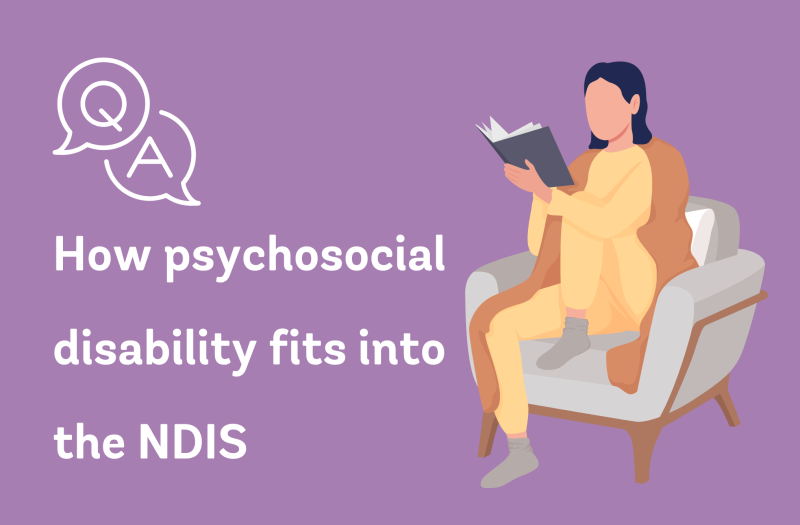
What is psychosocial disability?
Mental health and psychosocial disability are two sides of the same coin, but they are not identical. Mental health refers to a person's overall emotional, psychological, and social well-being. It encompasses how we think, feel, and act. Mental health conditions are diagnosed illnesses, such as anxiety, depression, bipolar disorder, or schizophrenia.
Psychosocial disability, on the other hand, focuses on the impact a mental health condition has on a person's daily life. It's not a diagnosis itself, but rather a way of understanding how symptoms from a mental health condition can interfere with daily activities. This could include things like taking care of oneself, maintaining relationships, or working and attending school.
How does psychosocial disability fit into the NDIS?
The National Disability Insurance Scheme (NDIS) recognises psychosocial disability as a reason for needing support. If a mental health condition significantly limits a person’s ability to manage daily activities, they may be eligible for the NDIS. The key here is the functional impact, not the diagnosis itself.
The NDIS focuses on funding supports that can improve a person’s ability to function and participate in the community. This could include assistance with daily living tasks like showering, dressing, or preparing meals. Support workers can also assist with managing symptoms or develop coping mechanisms. Therapy or counselling can address the underlying mental health condition, and skills training can improve social interaction, employment opportunities, or independent living. The NDIS has a Psychosocial Disability Recovery-Oriented Framework that emphasizes supporting participants on their recovery journey and achieving their goals for a fulfilling life.
Psychosocial disability is the third most common disability on the National Disability Insurance Scheme. People with a psychosocial disability made up 16 per cent of scheme participants as of June 2023.
However, not everyone with a psychosocial disability qualifies for the NDIS. The scheme has specific criteria for eligibility and funding levels. Additionally, there can be a lack of understanding about psychosocial disability within the system, which can make it difficult to get the support needed. Overall, the NDIS aims to support people with psychosocial disability to live more independent and fulfilling lives, but there's still room for improvement in access and understanding.
How we can help?
Flourish Australia is community mental health service and registered NDIS provider that specialises in providing tailored peer-led support. This includes assistance with day-to-day living, employment, housing and more. To find out more about how we can help, contact us on 1300 779 270 or here.
Talk to us today
For more information, contact us on 1300 779 270 or make an enquiry now.


